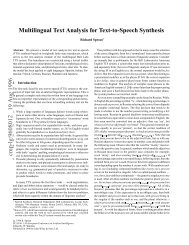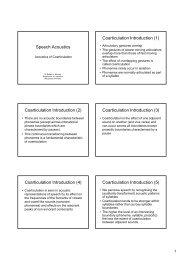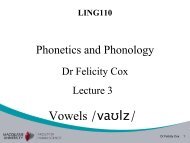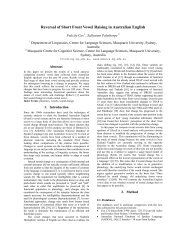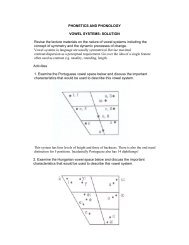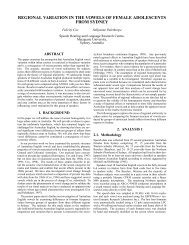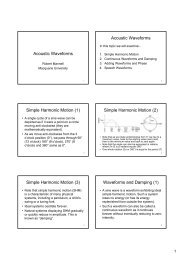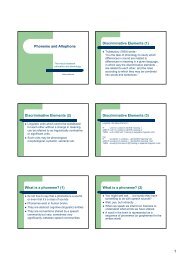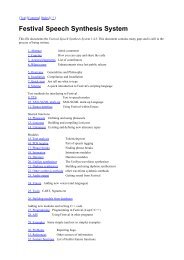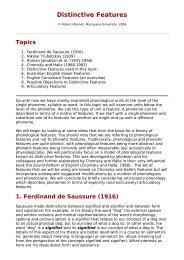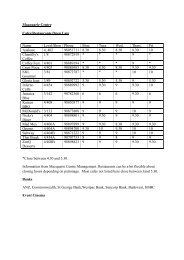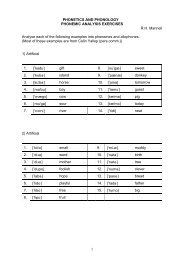The Syllable and the Foot : Summary - Speech Resource Pages
The Syllable and the Foot : Summary - Speech Resource Pages
The Syllable and the Foot : Summary - Speech Resource Pages
You also want an ePaper? Increase the reach of your titles
YUMPU automatically turns print PDFs into web optimized ePapers that Google loves.
eg. /stremp/ in English is an accidental gap because /str/ is legal<br />
(as in "string"), /emp/ is legal (as in "hemp"), but /stremp/<br />
happens not to be a word.<br />
Illegal <strong>Syllable</strong>s<br />
<strong>The</strong>se violate a phonotactic constraint in that language.<br />
eg. /knep/ is illegal in English because no words can start with<br />
/kn/. In German, this would be an accidental gap since /kn/ does<br />
occur (‘Knoten’, ‘Kneipe’ etc.).<br />
Maximum Onset Principle<br />
Phonotactic constraints in <strong>the</strong> onset are sometimes used to syllabify<br />
polysyllabic words under an algorithm known as <strong>the</strong> maximum<br />
onset principle. <strong>The</strong> problem is as follows. If we have a word like<br />
'athlete', which we know consists of two syllables, where does <strong>the</strong><br />
syllable boundary occur? <strong>The</strong> maximum onset principle algorithm<br />
works on <strong>the</strong> basis that as many consonants should be syllabified<br />
with a following vowel, providing that <strong>the</strong> resulting sequence is<br />
phonotactically legal. In this case, we have to decide whe<strong>the</strong>r /θl/<br />
belongs with <strong>the</strong> first syllable, <strong>the</strong> second, or whe<strong>the</strong>r /θ/ goes with<br />
<strong>the</strong> first, <strong>and</strong> /l/ with <strong>the</strong> second etc.<br />
Based on <strong>the</strong> maximum onset principle, we would ask:-<br />
(i) Are <strong>the</strong>re any words in English that can begin with /l/?<br />
Yes, e.g. 'leaf', 'lot' etc.<br />
<strong>The</strong>n assign /l/ to <strong>the</strong> second syllable.<br />
(ii) Now move one slot to <strong>the</strong> left: are <strong>the</strong>re any syllables that can<br />
begin with /θl/?<br />
No. <strong>The</strong>refore, <strong>the</strong> syllable boundary goes after /θ/ i.e. <strong>the</strong> word<br />
has two syllables, <strong>the</strong> first of which is /æθ/, <strong>and</strong> <strong>the</strong> second of<br />
which is /liːt/.



